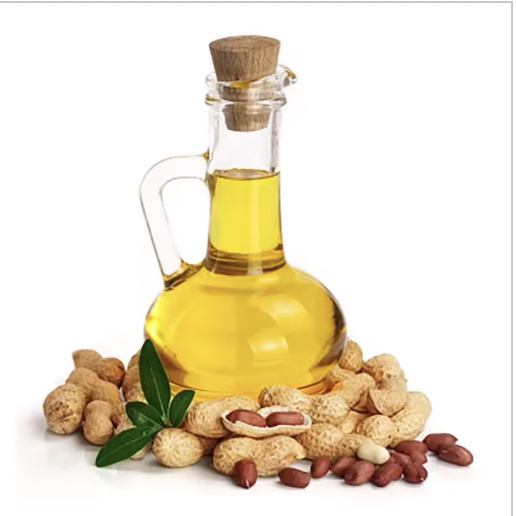Understanding the Nutritional Power of Peanut Oil in Modern Diets
In the vast landscape of cooking oils, peanut oil stands out as a versatile and nutritious option that has been embraced by cultures worldwide. This golden liquid, extracted from ground peanuts, brings both culinary excellence and health benefits to the table. As more people become conscious about their dietary choices, peanut oil has emerged as a preferred option for health-conscious individuals and culinary enthusiasts alike.
The journey of peanut oil from kitchen staple to health food phenomenon reflects our growing understanding of the role that different oils play in our overall well-being. With its unique composition of healthy fats and beneficial compounds, peanut oil offers a compelling case for those looking to enhance their dietary habits without compromising on taste or cooking versatility.
Essential Nutritional Components of Peanut Oil
Beneficial Fatty Acid Profile
Peanut oil contains an impressive balance of fatty acids that contribute to its health-promoting properties. Rich in monounsaturated fats, particularly oleic acid, peanut oil helps maintain healthy cholesterol levels when used as part of a balanced diet. These heart-friendly fats make up approximately 48% of the oil's composition, putting it in the same category as olive oil for heart health benefits.
Additionally, the presence of polyunsaturated fats, including linoleic acid, makes peanut oil an excellent source of essential fatty acids that our bodies cannot produce naturally. These compounds play crucial roles in brain function, cell growth, and inflammatory response regulation.
Vitamin and Antioxidant Content
Beyond its fatty acid profile, peanut oil is a notable source of vitamin E, a powerful antioxidant that helps protect cells from damage caused by free radicals. One tablespoon of peanut oil provides about 11% of the daily recommended intake of vitamin E, supporting immune function and skin health.
The oil also contains phytosterols, plant-based compounds that can help reduce cholesterol absorption in the digestive system. These natural components contribute to the oil's overall health-promoting properties and make it a valuable addition to a nutrient-rich diet.
Culinary Applications and Health Benefits
Versatility in Cooking Methods
One of the most appealing aspects of peanut oil is its high smoke point, approximately 450°F (232°C), making it ideal for various cooking methods. This characteristic allows for high-temperature cooking while maintaining the oil's structural integrity and preventing the formation of harmful compounds. Whether stir-frying, deep-frying, or sautéing, peanut oil maintains its nutritional benefits while imparting a subtle, pleasant flavor to dishes.
The oil's stability at high temperatures also means less degradation during cooking, which helps preserve its beneficial properties and prevents the formation of trans fats. This makes peanut oil an excellent choice for both home cooking and professional culinary applications.
Impact on Heart Health
Regular consumption of peanut oil, as part of a balanced diet, can contribute to cardiovascular health. The high concentration of monounsaturated fats helps reduce bad cholesterol (LDL) while maintaining good cholesterol (HDL) levels. These properties make peanut oil a heart-healthy alternative to saturated fat-rich oils.
Research suggests that the phytosterols in peanut oil may help reduce the risk of heart disease by lowering cholesterol absorption. When combined with a healthy lifestyle, incorporating peanut oil into your diet can be part of a comprehensive approach to heart health maintenance.
Incorporating Peanut Oil into Daily Meals
Cooking Techniques and Tips
Making the most of peanut oil's health benefits starts with proper usage in daily cooking. For optimal results, store peanut oil in a cool, dark place and use it within its recommended shelf life. When cooking, remember that while peanut oil is heat-stable, moderate use is key to maintaining a balanced diet.
Consider using peanut oil for Asian-inspired dishes where its subtle nutty flavor can enhance the overall taste profile. It's particularly excellent for stir-fries, where its high smoke point allows for proper searing while maintaining nutritional benefits. For salad dressings, try blending peanut oil with rice vinegar and sesame oil for a healthy, flavorful combination.

Meal Planning and Recipe Ideas
Incorporating peanut oil into meal planning can be both creative and nutritious. Use it as a base for marinades, combining it with ginger, garlic, and soy sauce for a healthy flavor boost. In baking, peanut oil can replace butter or other oils in certain recipes, contributing to a lighter texture while adding nutritional benefits.
For weekly meal prep, consider preparing a batch of roasted vegetables using peanut oil, which can be used throughout the week in various dishes. The oil's stability means prepared foods maintain their quality and nutritional value when stored properly.
Frequently Asked Questions
Is peanut oil suitable for people with peanut allergies?
Highly refined peanut oil is generally considered safe for people with peanut allergies as the refining process removes the proteins that cause allergic reactions. However, cold-pressed or gourmet peanut oils may still contain these proteins, so individuals with peanut allergies should consult their healthcare provider before use.
How long can peanut oil be stored?
Unopened peanut oil can last up to two years when stored in a cool, dark place. Once opened, it should be used within six months to a year for optimal quality and nutritional benefits. Proper storage in an airtight container away from heat and light will help maintain its freshness.
Does peanut oil need to be refrigerated?
Peanut oil does not require refrigeration when stored properly in a sealed container at room temperature. However, refrigeration can extend its shelf life, particularly in warm climates or after opening. If refrigerated, the oil may become cloudy but will clear up when returned to room temperature.

 EN
EN
 DA
DA
 AR
AR
 NL
NL
 FI
FI
 FR
FR
 DE
DE
 EL
EL
 HI
HI
 IT
IT
 JA
JA
 KO
KO
 NO
NO
 PL
PL
 PT
PT
 RU
RU
 ES
ES
 SV
SV
 TL
TL
 ID
ID
 SR
SR
 UK
UK
 VI
VI
 HU
HU
 TH
TH
 TR
TR
 FA
FA
 AF
AF
 MS
MS
 GA
GA
 MK
MK
 HY
HY
 KA
KA
 BN
BN
 LA
LA
 MN
MN
 NE
NE
 MY
MY
 KK
KK
 UZ
UZ
